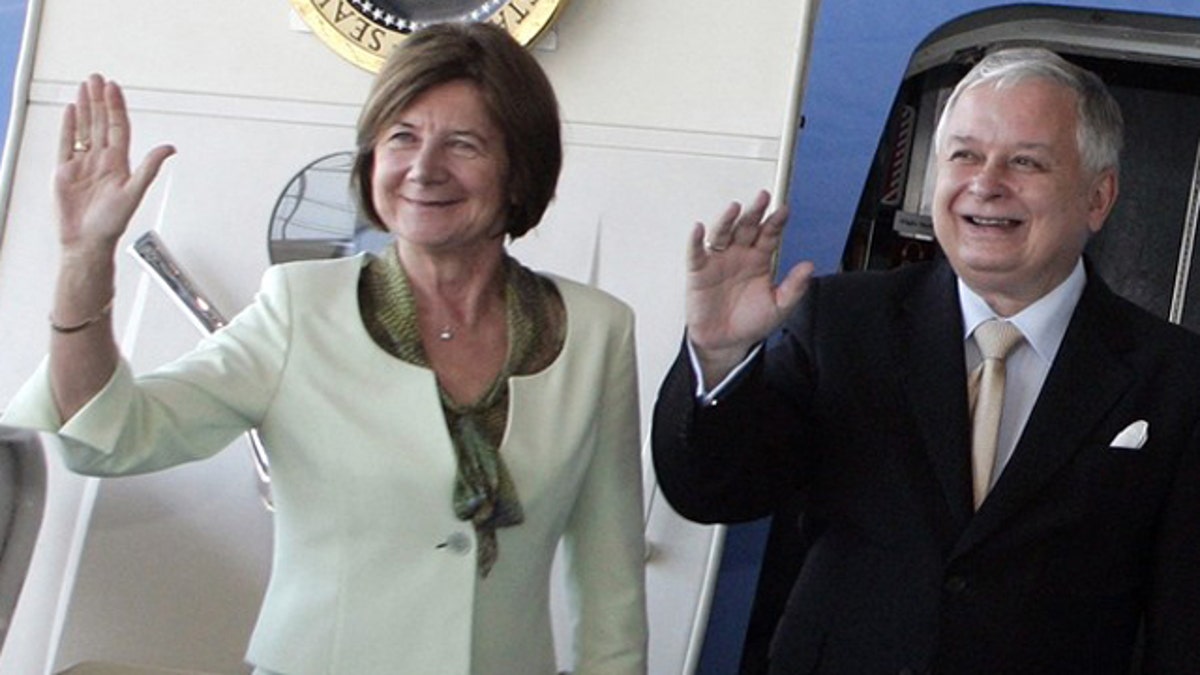
(Reuters)
The deaths of the Polish president, army chief of staff, national bank president, deputy foreign minister and some of the country's highest military and civilian leaders in a tragic plane crash have changed the political landscape of Poland.
President Lech Kaczynski was leading a delegation of 88 people on Saturday to an event marking the 70th anniversary of the massacre of thousands of Polish officers by Soviet secret police, when their plane went down in Russia.
A government spokesman told Reuters on Saturday that a presidential election was to be scheduled to find a replacement for Kaczynski, as the Polish government was scheduled to hold an emergency meeting in Warsaw early Saturday afternoon. The Polish constitution says the election date must be announced within two weeks and the election must take place within two months of the announcement.
Bronislaw Komorowski, head of the Polish lower house, is expected to take over presidential duties. His office announced he was on his way to Warsaw Saturday.
Komorowski, a 57-year-old former anti-communist dissident from an aristocratic family, was the official candidate of the liberal Civic Platform (PO). Opinion polls had suggested Komorowski, Prime Minister Donald Tusk's centrist candidate, may have won the next presidential race against Kaczynski.
During Kaczynski's presidency, he pursued a strongly pro-U.S. foreign policy, in accordance with a cross-party consensus that has grown in Poland since the fall of communism. He was an enthusiastic backer of plans to build a U.S. missile defense facility in the country, the largest of the European Union's new eastern members.
Poland's former president, Lech Walesa, said the death of Kaczynski and the other passengers on the plane was "an inconceivable tragedy."
"Jesus, Holy Mary, it's an inconceivable tragedy, an inconceivable disaster," he cried after learning Kaczynski died during the crash.
Jacek Wasilewski of the Warsaw's Higher School of Social Psychology said the president's death will "have a huge impact on the elections."
"The political consequences will be long term and possibly will change the entire future landscape of Polish politics," Wasilewski told Reuters.
Newscore, Reuters and the Associated Press contributed to this report.








































